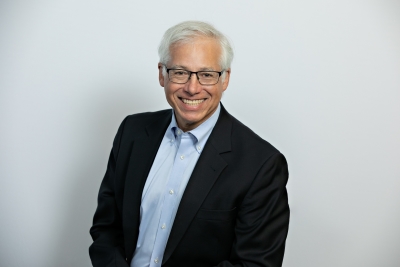
Working with patients has always been a matter of the heart for Dr. Ken Stein.
He began his career in practicing medicine. As an electrophysiologist and associate director of Clinical Cardiac Electrophysiology at Weill Cornell Medical Center, his focus was patients with abnormal heart rhythms, or arrhythmias. While in this role he also published over 150 peer-reviewed scientific publications on electrophysiology.
“I come from a medical family,” he says. “My father was a general practitioner; his office was attached to our house. My younger brother is a doctor and my daughter is a doctor. So, I guess it’s in the blood.”
In 2009, Dr. Stein moved from treating cardiac patients to a corporate role when he was approached to be senior vice president and chief medical officer (CMO) for the Rhythm Management business at Boston Scientific. While he was unsure about the switch at first, an interview with the global CMO of Boston Scientific at the time, Dr. Don Baim, convinced him that the new job would allow him to continue helping patients, only on a far larger scale.
Today, Dr. Stein adds global chief medical officer to his title at Boston Scientific. He took a moment to speak with us about his new responsibilities – and why putting patients first is the thread that runs through his decades-long career and remains at the forefront of his work.
What exactly is the role of a chief medical officer (CMO)?
Most importantly, a CMO’s job is to be the voice of the patient. And that’s why I initially joined Boston Scientific 13 years ago. I knew that I knew nothing about business, but I also knew that I could make sure Boston Scientific did everything we could to meaningfully improve patient outcomes.
After that, it’s about three things: thinking about what new products we should try to bring to market through industry-leading clinical trials, handling any issues that affect patient safety and ensuring there’s professional medical education available to teach healthcare providers how to use our devices safely and effectively.
What will your first priorities be as global CMO?
We have strong CMOs for each of our business segments. I’m never going to pretend to know as much about, say, urology as Dr. Ron Morton, the CMO for that business. What’s different for me now is having a role representing their voices both to company leadership and to external stakeholders.
I’ll also take a larger role in helping to decide what products we invest in as a company. Whether it’s evaluating a proposal for our research and development (R&D) team or a company we’re looking to acquire, I’m asking, “Is this something that is going to make a difference and fulfill unmet clinical needs? Does it matter? And if it matters, can we do this effectively?”
When it comes to clinical trials, one of the biggest challenges is making sure that we’re focusing on the studies we feel will have the biggest impact on patient outcomes, and designing them with that goal in mind. I will challenge whether the results from our trials are giving us answers that are truly meaningful so that we can make improvements that benefit patients who have our devices in the future.
As someone who has been both a physician and a business leader, you have a unique perspective on our health care industry. What are the biggest problems you see, and how is Boston Scientific poised to help solve them?
Resolving health disparities is a major issue. Close the Gap – which is our program to close the health inequity gap through provider education and collaboration, advocacy and society partnerships and patient disease state awareness -- is probably the best example of an explicit way that we go about doing that. We’ve been running this program for more than 15 years. This is implicit in our mission and in the DNA of Boston Scientific.
We can also bring value as a company by helping clinicians improve outcomes, enhancing safety and making procedures more efficient, standardized and straightforward so more practitioners can perform them. We are always looking for ways to do this across our product portfolio. One example that I am very excited about is our FARAPULSE™ Pulsed Field Ablation (PFA) System, which helps treat atrial fibrillation (or AFib). The emerging field of PFA has shown promise in improving both the safety of cardiac ablation therapy for patients and the efficiency and ease of use of these procedures for physicians.
You have an obvious passion for treating patients. What keeps you going?
I’m continually impressed by how smart everyone I work with is, and how passionate and committed they are to the goal of making patients’ lives better. I can’t think of a lot of things that are more emotionally rewarding than knowing every day that you’re setting out to make lives better. More days than not, that’s the outcome.
***This story was updated on September 14, 2025.